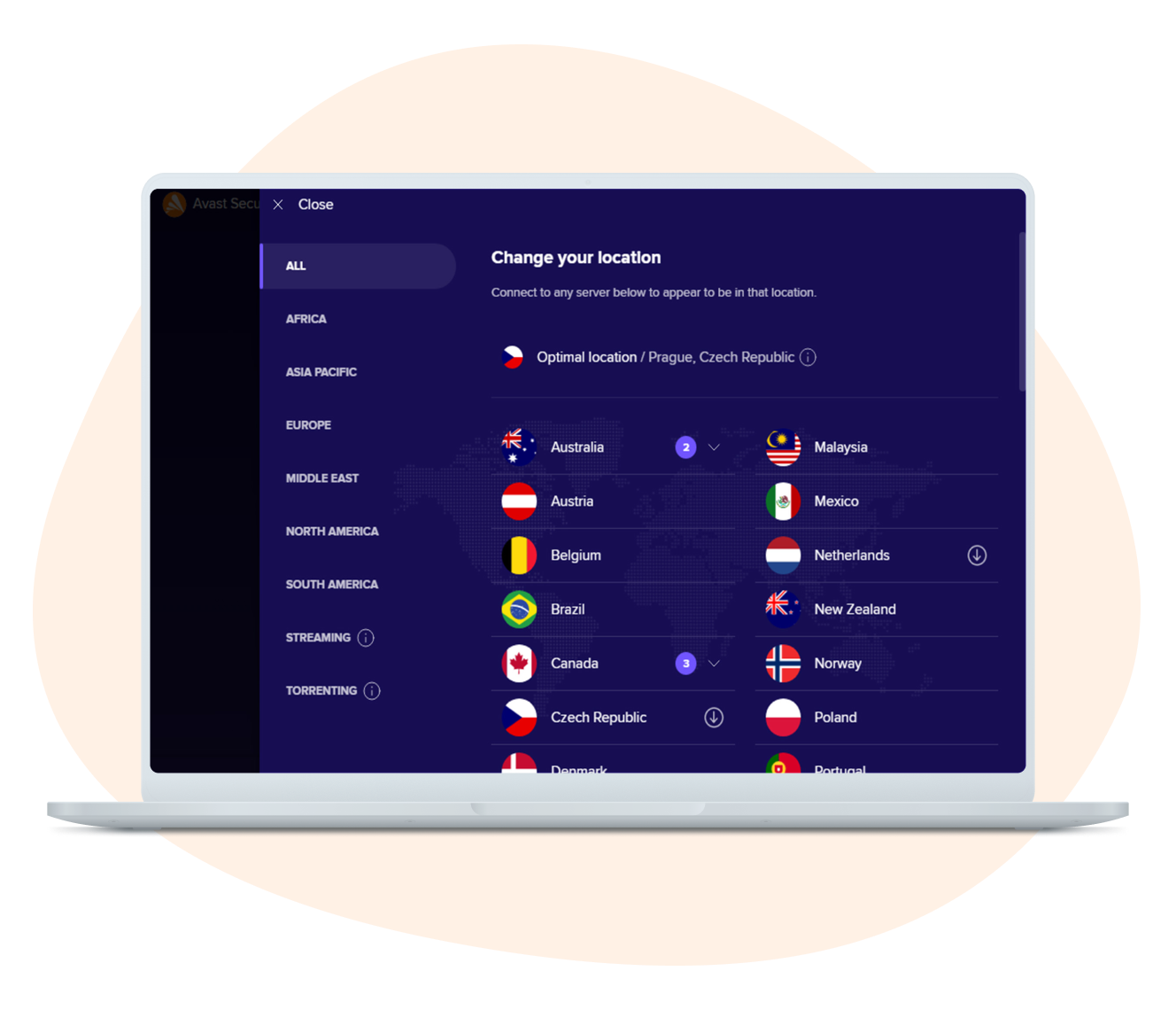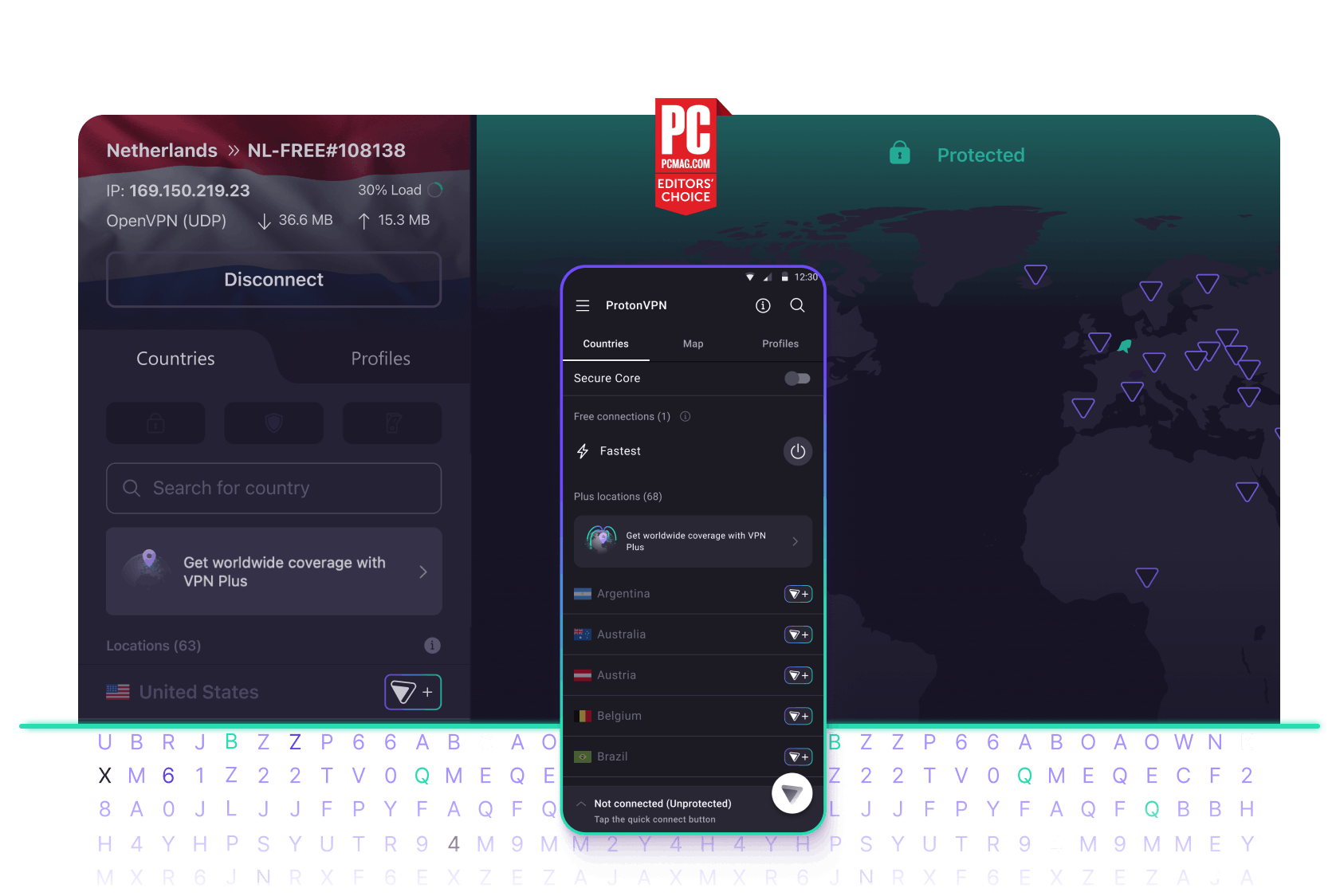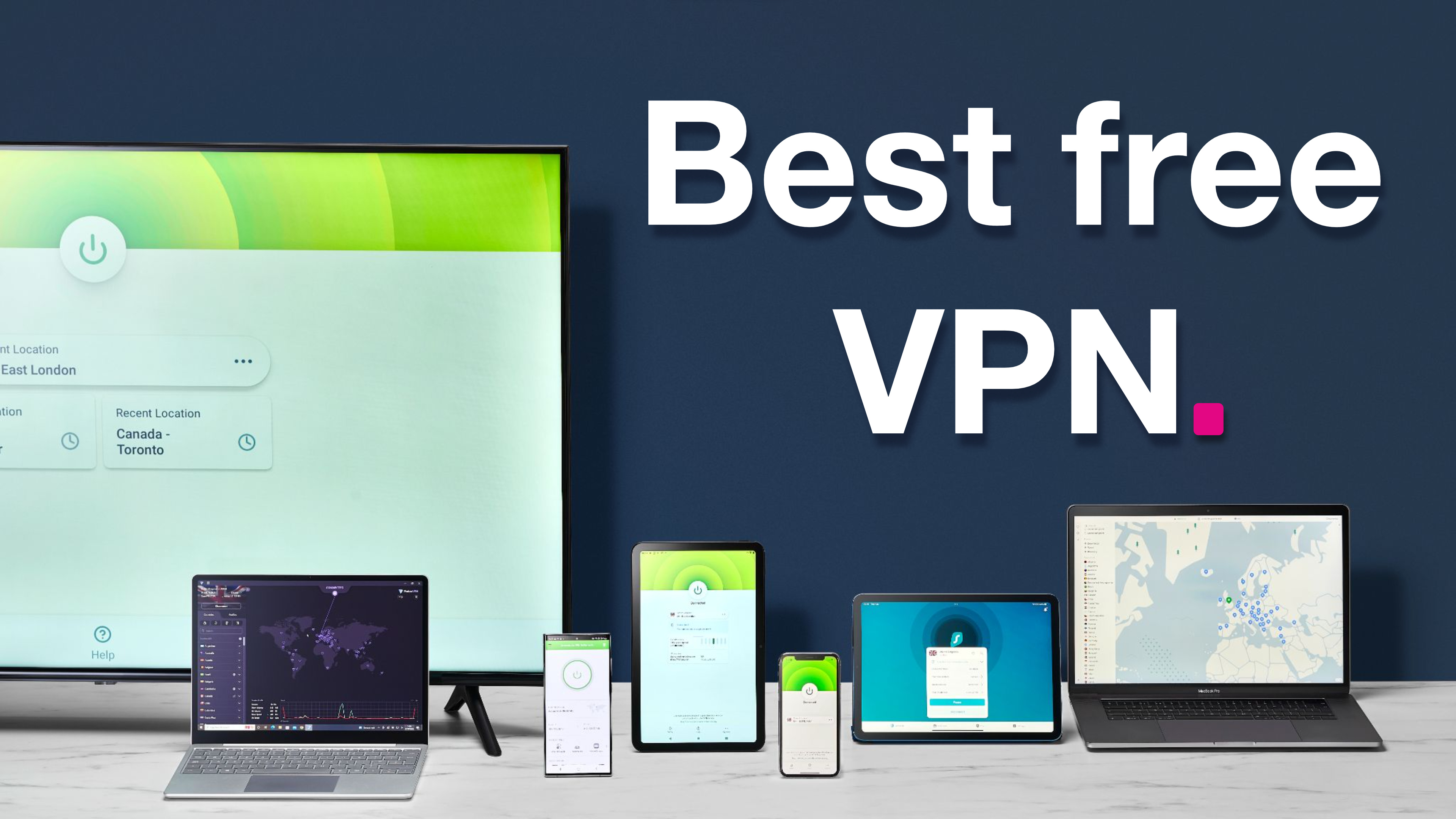In today’s digital world, online privacy is crucial. A Virtual Private Network (VPN) helps protect your personal data and browsing activity.
Many people seek the best free VPN options to secure their online presence without spending money. Free VPNs can offer basic protection while keeping your information safe from hackers and snoopers. They allow you to browse the internet with greater freedom, bypassing restrictions and accessing content from different regions.
However, not all free VPNs are created equal. Some may compromise your security or limit your speed. This guide will help you find the best free VPNs available for download. Stay safe online and enjoy a more open internet experience with the right choice.
The Need For Digital Privacy
In today’s world, digital privacy is crucial. Many people use the internet daily. Yet, few think about their online safety. Protecting personal information is more important than ever. Cyber threats are everywhere. We must take steps to secure our data.
Rising Cybersecurity Threats
Cybersecurity threats are increasing rapidly. Hackers target personal data and sensitive information. This can lead to identity theft and financial loss. Many people fall victim to phishing scams and malware attacks.
Security breaches happen often. Companies may not protect your data well. Personal information can end up in the wrong hands. We need to be aware of these dangers.
Personal Data At Risk
Your personal data is valuable. Companies collect it for many reasons. They use it for advertising and profit. This can feel intrusive and unsafe.
Many apps and websites track user behavior. They may share your data without consent. This puts your privacy at risk. Using a VPN can help protect your information online.
Digital privacy matters. Everyone deserves to feel safe online. Taking action is essential for your security.

What Is A Vpn?
A VPN, or Virtual Private Network, is a tool for online safety. It creates a secure connection between your device and the internet. This connection hides your IP address. It also encrypts your data. This makes it harder for others to see what you do online.
Many people use VPNs for privacy and security. They help protect sensitive information. You can browse the web without worrying about hackers. VPNs are useful for anyone wanting to stay safe online.
The Role Of Vpn In Privacy
VPNs play an important role in protecting your privacy. They help keep your online activities private. Your internet service provider cannot see your browsing history. This prevents unwanted tracking.
With a VPN, you can access websites freely. You can avoid censorship in some regions. This gives you the freedom to explore the internet without limits.
How Vpns Protect Your Online Activity
VPNs protect your online activity through encryption. This means your data is turned into a code. Only you and the VPN server can read it.
VPNs also hide your location. They replace your IP address with one from the VPN server. This makes it difficult for others to trace your online actions.
Using a VPN helps keep your information safe. It adds a layer of security to public Wi-Fi. You can connect to the internet confidently.
Free Vs Paid Vpn Services
Choosing between free and paid VPN services can be tricky. Many users want privacy without spending money. Free VPNs seem appealing. Yet, they often come with drawbacks. Paid VPNs offer better security and speed. Understanding the differences helps you make a wise choice.
Comparing Features And Limitations
Free VPN services often have limited features. Here’s a quick comparison:
| Feature | Free VPN | Paid VPN |
|---|---|---|
| Data Limit | Usually low or capped | Unlimited data |
| Speed | Slower connections | Faster, more reliable |
| Server Locations | Limited options | Wide range of locations |
| Security Features | Basic encryption | Advanced security protocols |
Free VPNs often restrict bandwidth and server choices. Paid options provide better performance and more security features. Users can enjoy unlimited data and faster speeds with paid services.
The True Cost Of ‘free’
Free VPNs come with hidden costs. They often track user data. This can lead to privacy risks. Some free services may sell your data to advertisers.
- Potential data logging
- Ads and pop-ups
- Limited customer support
Choosing a free VPN may save money. But it could compromise your privacy. Weigh the risks carefully before making a decision.
Top Free Vpns For Ultimate Privacy
Finding the right free VPN can be tough. Many people want to protect their online privacy without spending money. Here, we will explore the best free VPNs available. These options offer strong privacy features while being easy to use.
Criteria For Ranking
We used specific criteria to rank the top free VPNs. Here are the main points:
- Security Features: Strong encryption is vital.
- User Ratings: High ratings from users matter.
- Speed: Fast connection speeds are important.
- Server Locations: More locations allow better access.
- Device Compatibility: Works on various devices is essential.
User-friendly Interfaces
Easy-to-use interfaces make a big difference. Here are some features to look for:
- Simple setup process.
- Clear menus and options.
- Helpful customer support.
- Easy navigation on mobile apps.
Top free VPNs often have friendly designs. This helps users connect quickly and easily.
No-logs Policies
A no-logs policy means the VPN does not track your activity. This is crucial for privacy. Here are some benefits:
- Your data stays safe.
- No personal information is stored.
- You can browse freely without worries.
Choosing a VPN with a strict no-logs policy enhances your online security. Always check the policy before downloading.
| VPN Name | Key Features | No-Logs Policy |
|---|---|---|
| VPN A | Strong encryption, fast speeds | Yes |
| VPN B | User-friendly, multiple servers | Yes |
| VPN C | Good customer support, reliable | Yes |
How To Choose The Right Vpn
Choosing the right VPN can be challenging. Many options are available. Focus on key features to find the best fit for your needs. Here are important factors to consider.
Evaluating Security Protocols
Security is vital in a VPN. Not all VPNs offer the same level of protection. Look for these common security protocols:
- OpenVPN: Highly secure and widely used.
- IKEv2/IPsec: Fast and secure, great for mobile devices.
- L2TP/IPsec: More secure than PPTP but slower.
- PPTP: Fast but less secure, not recommended for sensitive data.
Check if the VPN uses strong encryption. AES-256 is the best choice. This ensures your data remains private and secure.
Assessing Speed And Performance
Speed is crucial for a good VPN experience. A slow connection can frustrate users. Here are factors to evaluate:
- Server Locations: More servers mean better speed options.
- Bandwidth Limits: Unlimited data is ideal for streaming.
- Connection Stability: A reliable connection is essential.
Look for reviews and tests on speed. This helps you understand real-world performance. A good VPN should balance speed with security.
Setting Up Your Free Vpn
Setting up a free VPN can feel tricky. With the right steps, it becomes easy. A good VPN keeps your online activity private. It also helps you access blocked content. Let’s walk through the setup process.
Step-by-step Installation Guide
Follow these simple steps to install your free VPN:
- Choose a trusted free VPN provider.
- Go to their official website.
- Download the VPN software for your device.
- Open the downloaded file to start installation.
- Follow the prompts on the screen.
- Agree to the terms and conditions.
- Select your preferred installation settings.
- Click ‘Install’ to begin the process.
- Once done, open the VPN app.
- Create an account or log in.
- Choose a server location.
- Click ‘Connect’ to start using your VPN.
Troubleshooting Common Issues
Sometimes, problems may arise during setup. Here are some common issues and fixes:
- VPN won’t connect: Restart your device and try again.
- Slow connection speeds: Change server locations for better speed.
- App crashes: Reinstall the app to fix bugs.
- Cannot access certain websites: Clear your browser cache and cookies.
- Connection drops: Check your internet connection stability.
These tips can help you resolve common problems. Enjoy your secure browsing experience!
Maximizing Vpn Benefits
Using a VPN brings many advantages. Understanding how to maximize these benefits is essential. A VPN can enhance your online safety. It can also help you access content from anywhere in the world.
Enhancing Security On Public Wi-fi
Public Wi-Fi networks are risky. Hackers often target these networks. Using a VPN protects your data. It encrypts your internet connection. This means others cannot see your online activities.
When you connect to a public Wi-Fi, your personal information is at risk. A VPN hides your IP address. It makes your online actions private. This added layer of security keeps your data safe.
Accessing Geo-restricted Content
Some websites restrict access based on location. A VPN allows you to bypass these restrictions. You can connect to servers in different countries. This opens up a world of content.
Streaming services often limit content to certain regions. With a VPN, you can enjoy shows and movies not available in your area. Accessing geo-restricted content is easy with the right VPN.

Caveats Of Using Free Vpns
Using a free VPN may seem attractive. It offers privacy and access to restricted content without any cost. But, there are important caveats to consider. Free VPNs can come with risks. Understanding these risks is essential.
Potential Privacy Concerns
Free VPNs often claim to protect your privacy. Yet, many do the opposite. They may track your online activity. Some even sell your data to third parties.
- Data logging policies may be unclear.
- Free VPNs can collect personal information.
- Your browsing habits may be monitored.
Look for a VPN with a clear privacy policy. A trustworthy VPN should not store your data. Always read reviews before choosing.
Limitations In Data And Bandwidth
Free VPNs usually have strict limits. These limits can affect your online experience.
| Feature | Free VPNs | Paid VPNs |
|---|---|---|
| Data Cap | Low (often 500MB – 2GB) | No limit |
| Speed | Slower connections | Faster connections |
| Server Options | Limited servers | Wide range of servers |
Many free VPNs restrict your daily or monthly data. This can lead to frustrating experiences. Slow speeds can make streaming difficult. Consider your needs before choosing.
Maintaining Privacy Beyond Vpns
Using a VPN is a smart step for online privacy. Yet, it is not the only measure needed. Protecting your information online requires more effort. Many tools and practices can help you stay safe. Let’s explore some best practices and additional tools.
Best Practices For Online Hygiene
Online hygiene is crucial for protecting your privacy. Follow these simple practices:
- Use Strong Passwords: Create passwords with letters, numbers, and symbols.
- Enable Two-Factor Authentication: This adds extra security to your accounts.
- Update Software Regularly: Keep your apps and devices updated.
- Avoid Public Wi-Fi: Use a VPN if you must connect to public networks.
- Be Cautious with Links: Do not click on suspicious links in emails or messages.
Additional Privacy Tools And Services
Several tools can enhance your online privacy alongside a VPN:
| Tool/Service | Description |
|---|---|
| Ad Blockers | Block unwanted ads and tracking scripts. |
| Privacy-Focused Browsers | Browsers like Brave or Firefox focus on user privacy. |
| Encrypted Messaging Apps | Use apps like Signal for secure communication. |
| Secure Cloud Storage | Services like Tresorit offer encrypted file storage. |
Using these tools can help you maintain privacy. Each tool has its own unique features. Choose the ones that fit your needs best. Stay safe online with these practices and services.

Frequently Asked Questions
What Is The Best Free Vpn Available?
The best free VPN available often varies based on user needs. However, popular options include ProtonVPN, Windscribe, and TunnelBear. Each offers unique features like strong security, ease of use, and limited bandwidth. Choose one that fits your requirements, such as privacy and accessibility.
Are Free Vpns Safe To Use?
Many free VPNs come with risks, such as data logging and weak encryption. It’s essential to research a VPN’s privacy policy before using it. Look for reputable providers that prioritize user security and do not sell your data. Always prioritize safety over cost when choosing a VPN.
Can I Stream Content With A Free Vpn?
Streaming with a free VPN can be challenging. Many free services have bandwidth limits and may not bypass geo-restrictions. However, some options like Windscribe allow streaming but with limited success. For optimal streaming, consider a paid VPN with better performance and reliability.
How Do I Download A Free Vpn?
Downloading a free VPN is straightforward. Visit the official website of the chosen VPN service. Click the download button for your device and follow the installation instructions. Always download from the official site to avoid potential malware and ensure security.
Conclusion
Finding a good free VPN is important for online privacy. It helps keep your data safe and allows you to access more content. Many options exist, but choose one that fits your needs. Check features like speed and security before downloading.
Always read reviews to ensure you make the right choice. A reliable VPN can make your internet experience better. Protect your online activities and enjoy browsing safely. Take the time to find the best free VPN that works for you.
Your privacy deserves the best protection.
